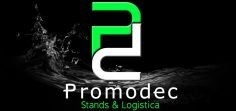
To do this, you must pick a business structure such as sole proprietorship or limited liability company. While no typical business structure exists for a self employed accountant, a limited liability company or limited liability partnership is common for new businesses that want to limit personal liability. Small Business Association can assist you in picking the best business structure, if you have not decided on one yet. You can also use the SBA website (sba.gov) to find out the licenses and permits you need for the business in your state.
You can also deduct amounts paid for any equipment that you rent and the expense of having to pay a fee to cancel a business lease is also deductible. A meal is a tax-deductible business expense when you are traveling for business, at a business conference, or entertaining a client, although entertainment expenses per se are generally not tax deductible. You can also deduct premiums you paid to provide coverage for your spouse, your dependents, and your children younger than age 27 at year’s end, even if they aren’t dependents on your tax return. Calculate the deduction using the Self-Employed Health Insurance Deduction Worksheet in IRS Publication 535. The self-employment tax refers to Social Security and Medicare taxes, similar to the Federal Insurance Contributions Act (FICA) tax paid by an employer. It’s only a deduction for calculating that taxpayer’s income tax when they deduct one-half of the self-employment tax.
Accountant costs: external help for bookkeeping
Individuals tend to pay a fixed fee, while corporations usually pay hourly rates since they work with their tax preparers throughout the year. Tax-deductible startup costs include market research and travel-related expenses for starting your business, scoping out potential business locations, advertising, attorney fees, and accountant fees. The $5,000 deduction is reduced by the amount that your total startup cost exceeds $50,000. You can also deduct up to $5,000 more in organizational costs, such as state filing fees and legal fees if you set up a corporation or LLC for your business.
- In an initial consultation, you’ll get free advice and a better understanding of what they’re able to offer you in case you choose to hire an accountant down the line.
- On average, an accountant costs
$37 per hour, but fees can vary depending on location, types of services, and accountant credentials. - However, this also isn’t as simple as that, because factors such as business size, experience, and projects type all influence the cost.
- A meal is a tax-deductible business expense when you are traveling for business, at a business conference, or entertaining a client, although entertainment expenses per se are generally not tax deductible.
- You will not receive a pro-rated refund; your access and subscription benefits will continue for the remainder of the billing period.
- Also, people will not be as inclined to pay more for someone who is not an expert in their specific industry.
But like all business decisions, you want to ensure you’re making the right one. To help you decide if hiring an accountant is right for you, read through our ultimate guide for hiring an accountant for small business in 2023. «For someone who has super basic returns — so W2 income, maybe just taking the standard deductions — those will probably be in the few $100 range,» says Jariwala. «Once you start getting more complex — if you have 1099 income, you accountant for self employed own a home, maybe you have some unique investments — that’s when the fee starts to go up, so it really varies.» Keep in mind that accounting fees may vary due to many factors, including which state you live in and the level of experience required for the complexity of your situation. Many self-employed people and small and medium-sized enterprises (SMEs) have to manage their own accounts to schedule invoices and keep track of payments and payroll.
